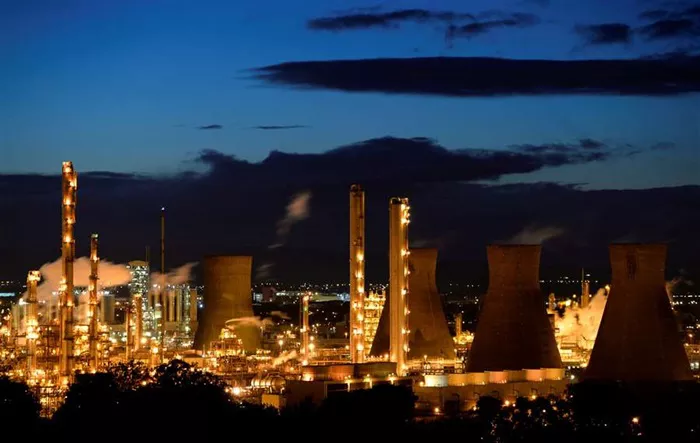The Grangemouth fuel refinery, Scotland’s oldest and a vital player in the UK’s energy landscape, is scheduled to cease operations in 2025, resulting in the loss of approximately 500 jobs. The facility, co-owned by state-owned PetroChina and petrochemical giant Ineos under the name PetroIneos, will transition to a fuel import-export hub.
In November 2023, the company indicated that global market pressures on refining operations would likely lead to this closure. With this significant shift, the UK and Scottish governments have committed an additional £20 million in joint funding to complement the existing £80 million allocated through the Falkirk and Grangemouth growth deal. This initiative aims to support displaced workers and the local community by fostering new energy projects in the region.
Expected to deliver over £628 million in economic benefits, the deal is projected to create approximately 1,600 new jobs in the area. The Grangemouth site, which commenced operations in 1924 under BP, currently imports liquefied natural gas (LNG) from the United States. However, declining market demand for the refinery’s products has precipitated its closure.
Franck Demay, CEO of PetroIneos, expressed concerns about the future of fuel demand, stating, “Demand for key fuels we produce at Grangemouth has already started to decline, and with a ban on new petrol and diesel cars due to come into force within the next decade, we foresee the market for those fuels will shrink further.”
The Grangemouth refinery, with an annual production capacity of about 7 million tonnes of fuel (14% of the UK’s total capacity) and 1.4 million tonnes of petrochemicals, has increasingly struggled against competition from modern, efficient refineries in the Middle East, Asia, and Africa. Currently, it is running at a loss that could reach £200 million by 2024.
Related topics:
- Ludovic Revel Appointed President of BKT Global OEM
- Royal Huisman Unveils ‘Special One’: The World’s Largest Sportfish Yacht Powered by Twin MAN Engines
- Danfoss Appoints Sriram Gurumurthy as Senior Vice President of Global Operations

